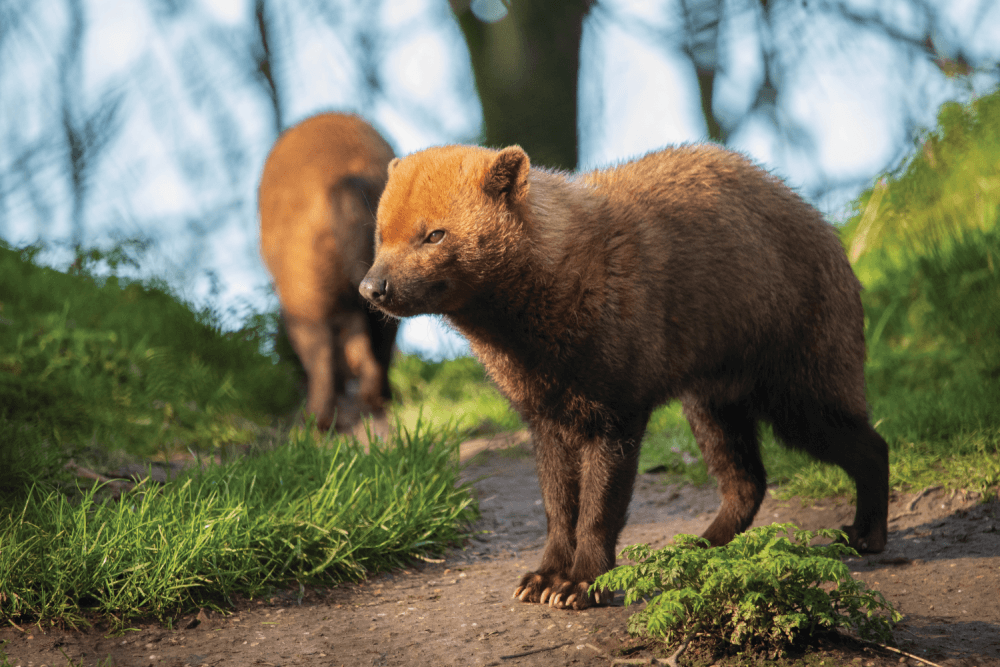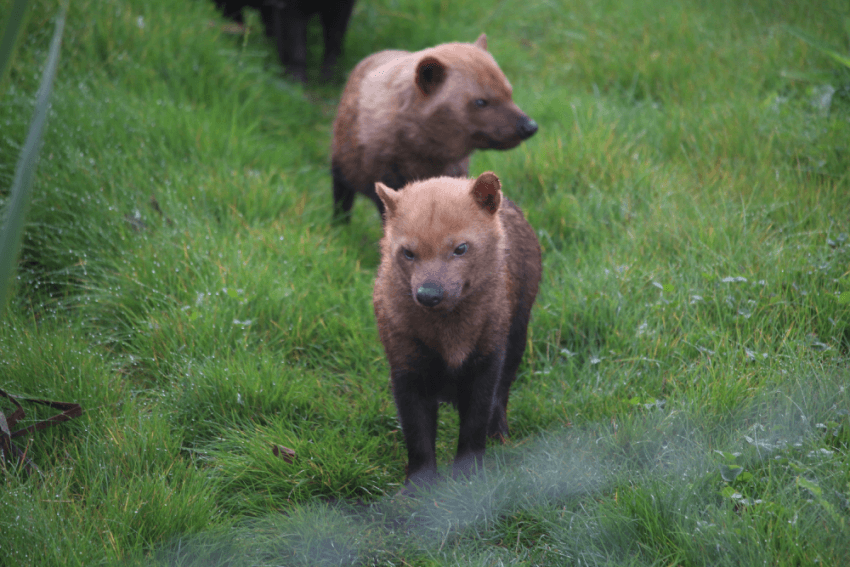Bush dogs are here!
August 12, 2023
August 12, 2023

We’re excited to announce a charismatic new species has arrived at Marwell zoo.
The pack of one male and three female bush dogs arrived from Yorkshire Wildlife Park on Tuesday 8 August, and are settling into their new home at Marwell.
Tiny Tim, Sofia, Emilia and Isabella, are a group of six-year-old siblings that have come to Marwell as a family group.
In the wild bush dogs are quite difficult to observe because they’re instinctively shy animals. Their short legs and stocky bodies make it easy for them to hide.
With the appearance of a small bear, the closest living relative of these squat canines is thought to be the maned wolf of central South America or the African wild dog.
Guests can find the new arrivals at the far end of the zoo, behind the caracara habitat where their new home gives them lots of planted areas and a pond to explore.
Carrie Arnold, Carnivore Team Leader, said: “We are all very excited that the bush dogs have arrived and it’s great to have a new species on the carnivore team.
“The team have worked exceptionally hard on creating a natural and immersive habitat and it will be good to see the bush dogs exploring it and to see the guests enjoying these amazing animals.

In the wild bush dogs are native to rainforests, densely vegetated lowland and seasonally flooded forests. They always live close to water.
Staying close to the ground they hunt mainly for rodents but are able to bring down prey much larger than themselves, including rheas and capybaras, when hunting in a pack.
The species can be quite vocal and it is thought this may be because they are unable to communicate by visual means in the forests of South America and North America
Listed as Near threatened on the International Union for Conservation of Nature’s Red List, the number of bush dogs in the wild is thought to be decreasing.
The main threats faced by this species are as a result of human encroachment and loss of habitat to either housing or farming.
They also risk contracting diseases from domestic dogs as the number of nearby human settlements increases.
Did you know?